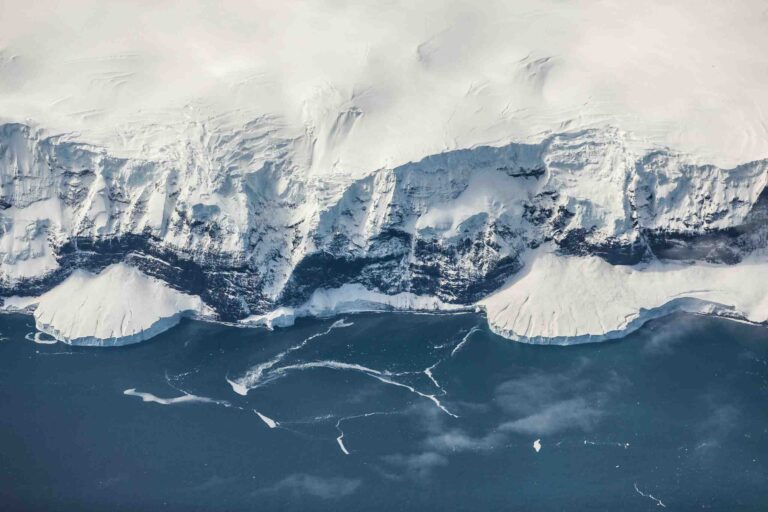On Feb. 21, 2023, the extent of Antarctica ice hit another worrying low, falling for the second consecutive year to its lowest level in 45 years with an area of less than 2 million km2.
This is according to a study published in the journal Ocean-Land-Atmosphere Research conducted by a team of scientists from Ocean-Land-Atmosphere Research (OLAR) and the State University of New York led by Jiping Liu.
Table of Contents
Antarctica, ice at the lowest since the late 70s
From images and data from satellite observations, the researchers were able to establish the dynamics driving the ice melt and follow the steps that led to this new negative record in recent months.
A finding that raises the question of whether this new low represents an occasional anomaly or an indication of a transition to a long-term decline.
The sea ice present in the Antarctic Ocean, scientists explain, shows great variability both seasonally and from year to year. On Feb. 21, 2023, Antarctic sea ice extent reached its seasonal low of 1.788 million square kilometers, setting a new record low since the late 1970s.
This negative record is not an isolated event but is part of a context that has seen anomalous shrinkage in ice extent since 2017. Alarming to scholars is the fact that it comes just after the previous record low of 1.924 million km2 in 2022.
After this record in fact, strong heat waves in East Antarctica and coastal areas kept ice extent well below standard in March and following.
Antarctica’s ice melting at a worrying pace
At this point, Antarctic sea ice experienced a rare event: a record low for three consecutive months (June, July, and August).
Since October, seasonal melting has reached a pace well above normal. Due to an additional strong seasonal warming anomaly, the decline of sea ice in December was so accelerated that it resulted in the second lowest extent ever recorded in the last month of the year.
An acceleration in ice melt that continued into January and February 2023. Several atmospheric factors associated with modes of climate variability may have contributed to the new record low in 2023, according to scholars.
First, the study says, there was a continuous positive Antarctic oscillation in 2022, peaking in September, November and December that led to a persistent southwestward shift in the Amundsen Sea Low (ASL). This fact has significantly reduced sea ice in the Bellingshausen Sea and east of the Antarctic Peninsula.
Also in 2022, the tropical disturbance called La Nina exacerbated these effects by altering atmospheric circulation. The ocean absorbed most of the excess heat, and the average temperature reached a record high.
Read also: Global warming: what is the key to living on a warmer planet
Ice melting: a brief anomaly or a long-term transition due to climate change?
Hence the question of whether these negative records of recent years are a brief anomaly due largely to natural climate variability or the telltale sign of a long-term transition to decreasing Antarctic sea ice, in which anthropogenic influence exceeds natural variability.
Significant ice reduction would cause profound impacts on the local climate and ecosystem, affecting ice shelf and food chain stability and wildlife populations.
Further research, the study concludes, is needed to answer outstanding questions and improve human understanding of how Antarctic sea ice change might interact with the broader Earth system.
Read also: Climate engineering: what is it and why it could be a solution to address climate change












